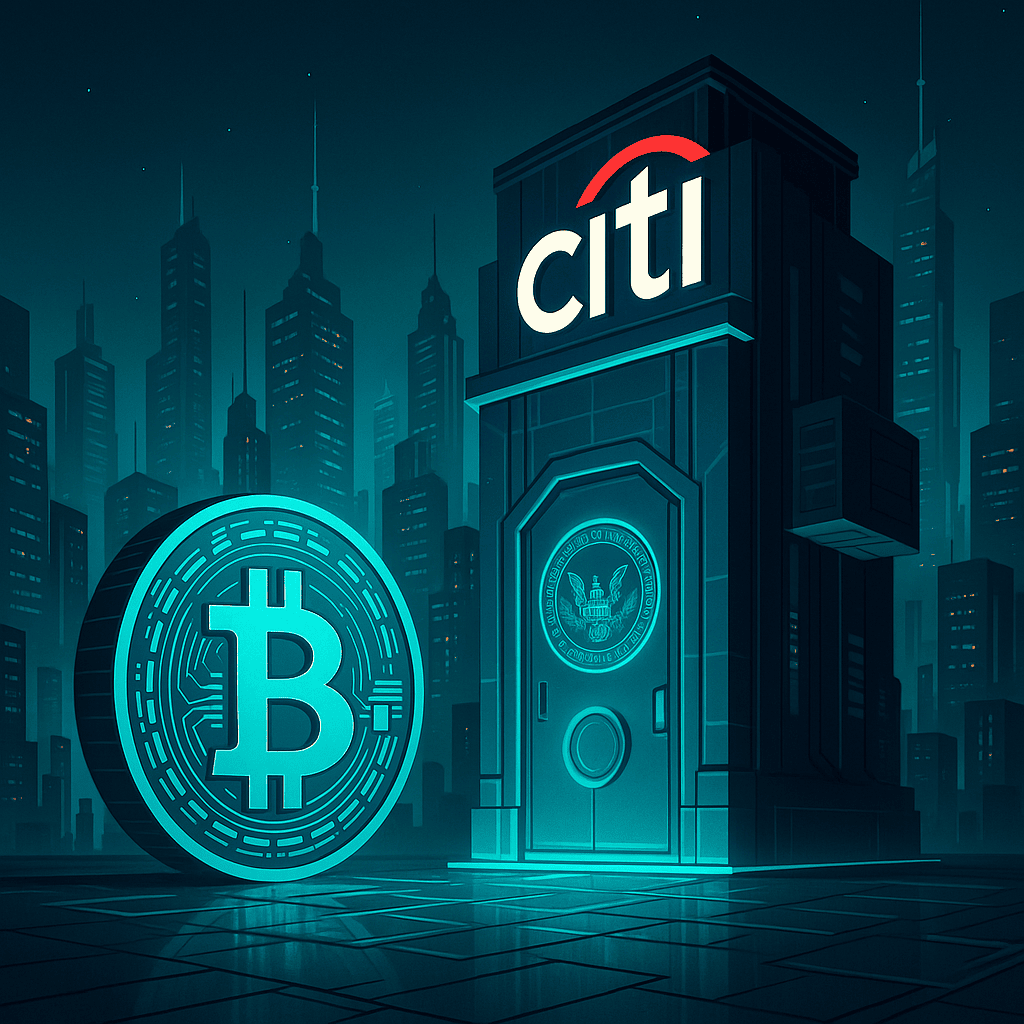How AI, Human Expertise Are Transforming Fact-Checking in Nigeria
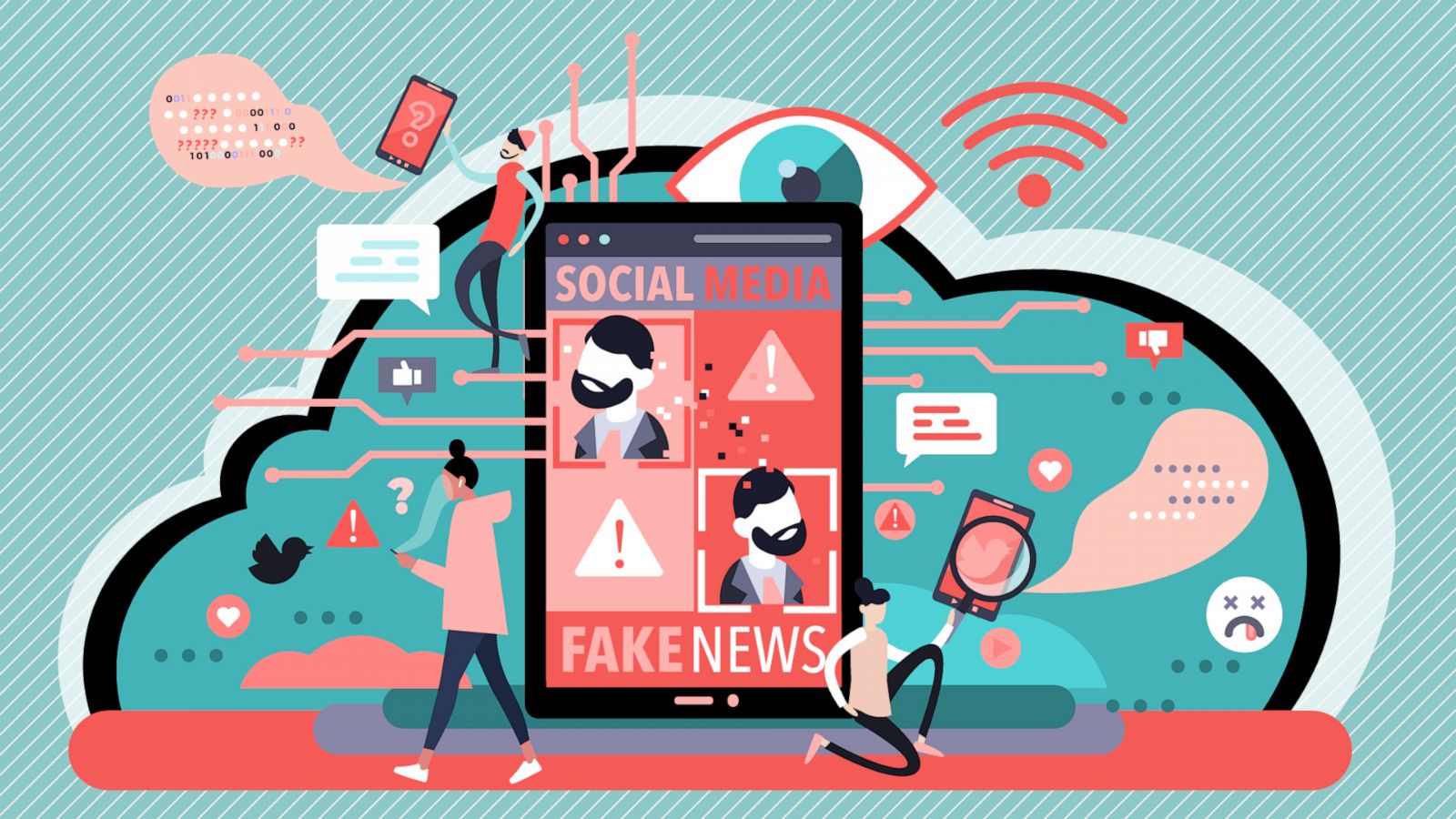
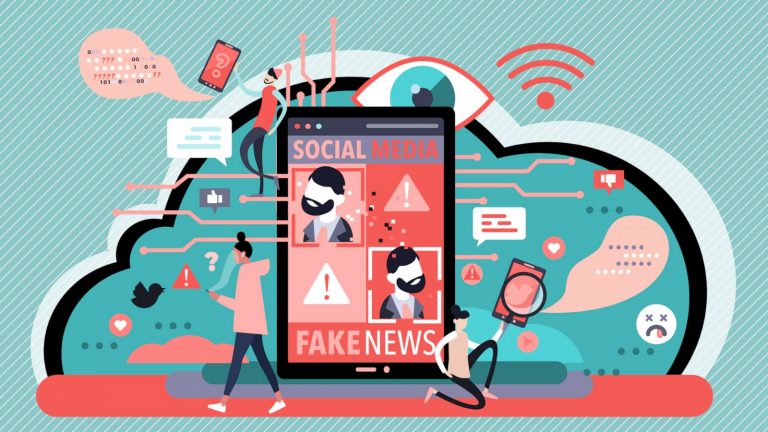
Across Nigeria, a new generation of fact-checking organisations is using artificial intelligence in combination with human expertise to strengthen the verification process. In this piece, our analyst notes that understanding how these tools work and the challenges they face reveals the growing sophistication of digital truth-seeking and the urgent need to balance technology with human judgment.
Artificial Intelligence Enters the Fact-Checking Room
Artificial intelligence is now a partner in the newsroom. Nigerian fact-checkers have adopted automated systems that scan digital platforms for potential misinformation. These tools identify trending claims, transcribe audio broadcasts, detect manipulated visuals, and even provide automated responses to user queries. While AI offers unprecedented speed and reach, it is the human fact-checker who ensures that evidence is valid, context is correct, and communication remains ethical. The collaboration between machines and people defines the future of verification.
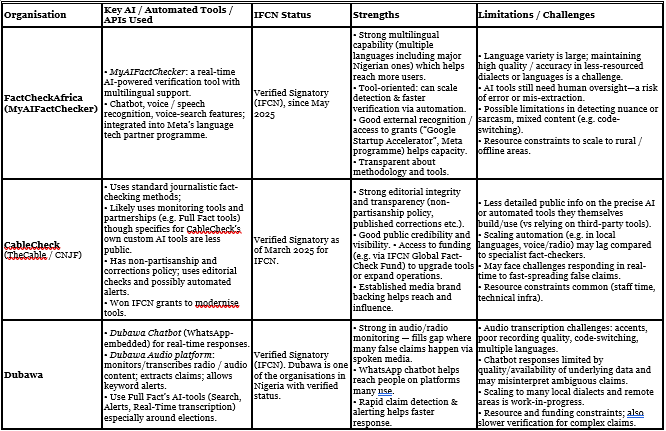
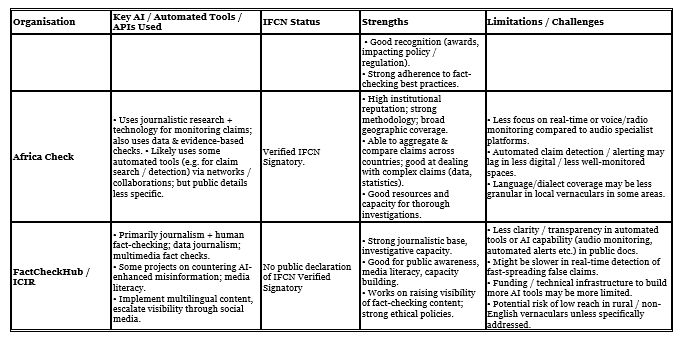
FactCheckAfrica’s MyAIFactChecker
At the forefront of this movement is FactCheckAfrica with its MyAIFactChecker tool. Built on large language models such as Meta’s Llama and integrated with multilingual speech recognition, the platform enables quick checks across text and voice formats. The system can process claims in several African languages, making it especially valuable in multilingual societies. Yet, it remains supervised by editors who validate each claim before publication. This human oversight is critical to prevent the algorithm from spreading false positives that arise from sarcasm, cultural nuance, or regional slang.
Register for Tekedia Mini-MBA edition 18 (Sep 15 – Dec 6, 2025): registration continues.
Tekedia AI in Business Masterclass opens registrations.
Join Tekedia Capital Syndicate and co-invest in great global startups.
Register for Tekedia AI Lab: From Technical Design to Deployment.
Dubawa’s Innovation in Audio and Chat Verification
Dubawa, operated by the Centre for Journalism Innovation and Development, represents another major step in AI-driven verification. Its audio platform monitors radio shows, transcribes them, and flags possible claims for investigation. This innovation is significant because information pollution (misinformation, disinformation, fake news, and hate speech) in Nigeria often circulates through radio conversations rather than only on social media. The same organisation also manages a WhatsApp chatbot that allows citizens to check viral messages in real time. Through these tools, Dubawa shows how artificial intelligence can extend the reach of verification to places where journalists cannot be present physically.
CableCheck and the Power of Partnerships
CableCheck, the fact-checking arm of The Cable newspaper, has integrated AI alert systems developed through partnerships with Full Fact, a United Kingdom organisation that pioneers automated claim detection. These collaborations show how international cooperation accelerates innovation. By combining AI tools with experienced reporters, CableCheck can quickly identify misleading statements made by public officials and media outlets.
Regional and Youth-Led Innovators
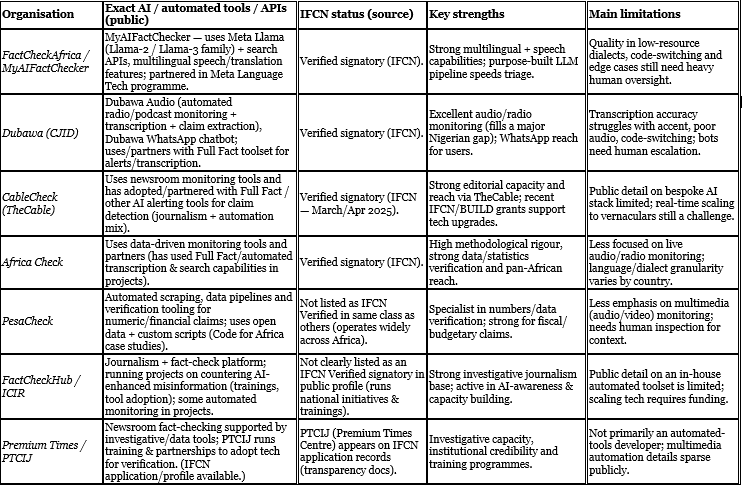
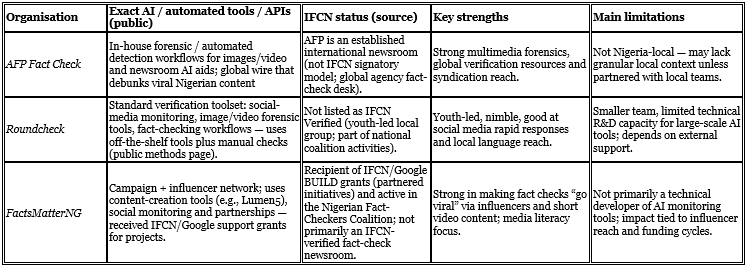
Pan-African initiatives such as Africa Check and PesaCheck demonstrate the regional dimension of the verification network. Africa Check uses automated search and transcription tools to monitor political and social discourse across multiple countries, while PesaCheck applies algorithmic scripts to verify statistical and financial claims.

The younger generation of Nigerian fact-checkers is also experimenting with automation. Projects such as Roundcheck and FactsMatterNG use open-source forensic software, influencer networks, and automated content-creation tools to monitor and correct misinformation. These efforts are less about building complex AI systems and more about adapting existing technologies to local realities. They show that innovation in information verification does not always require massive funding, but rather strategic creativity.
The Persistent Challenges
Despite the progress, there are significant challenges. Many AI systems still struggle to interpret local dialects, cultural idioms, and the fluid mix of English and Nigerian languages common in online conversations. Audio transcription tools may misinterpret poor recordings or background noise. Automated systems cannot yet fully understand context, intent, or the political undertone of a message. Therefore, human intervention remains the ethical and analytical backbone of fact-checking.
The key issue is sustainability. Developing and maintaining AI systems demands technical capacity, reliable funding, and secure infrastructure. Fact-checking organisations rely on grants and partnerships to stay afloat, which may limit their independence. Our analyst stresses that transparency in how AI models reach conclusions is essential to preserve public trust. “When algorithms are opaque, the risk of bias or misuse increases,” he pointed out.

The Human-AI Partnership for Truth
The integration of AI into fact-checking in Nigeria is not about replacing journalists with machines but about empowering them. Artificial intelligence enhances speed, detects patterns at scale, and filters massive amounts of information, while human fact-checkers provide context, ethics, and judgment. The strongest systems will continue to be those that recognise this partnership as symbiotic rather than competitive.
As information pollution evolves with the same technological sophistication, the fact-checking community must also adapt. Nigeria’s fact-checkers are showing the world that responsible use of AI can make truth more discoverable and accessible. The lesson for media, academia, and policymakers is that technology alone cannot defend the truth, but when guided by human values and critical reasoning, it can help rebuild public trust in information.
This position has been earlier emphasised by our analyst during AI Fundamentals Workshop held in Ibadan, where we walked participants through the processes of applying existing AI tools by exploring different information pollution cases. According to him, critical thinking is a key element in the verification and acting stages of controlling information pollution as well as protecting information ecosystem.




